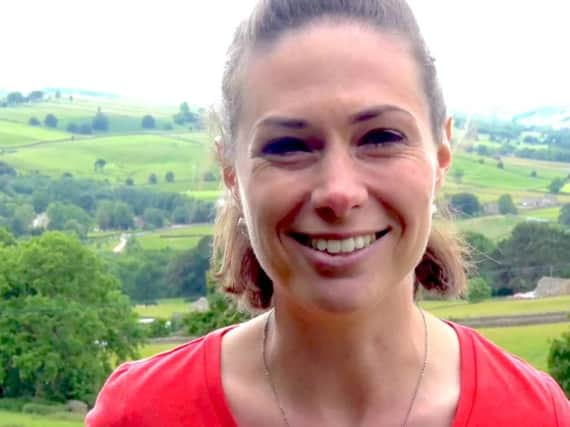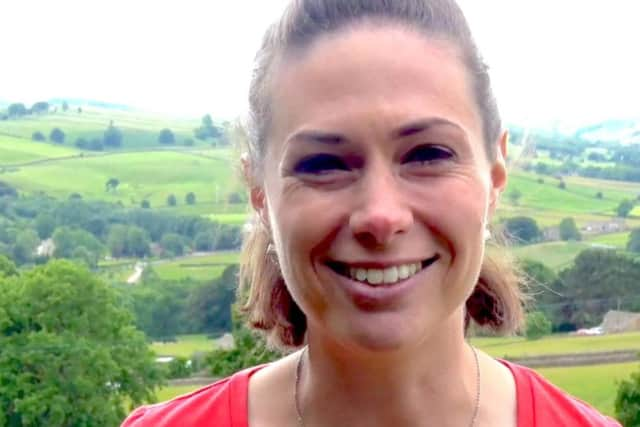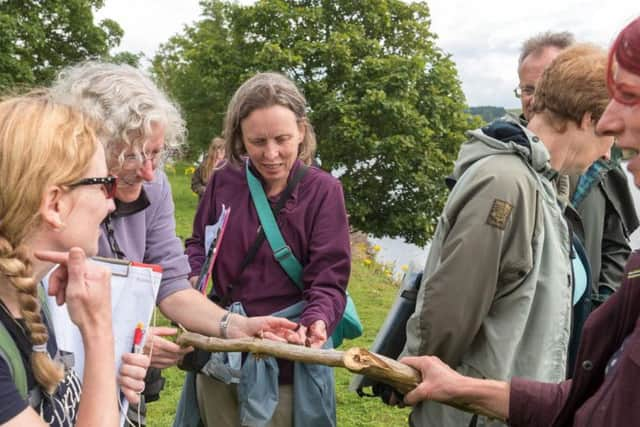VIDEO: Help Wild Watch to save threatened Yorkshire wildlife says TV star Lindsey Chapman


The survey, which is part of action to reverse the UK’s so-called ‘ecological apocalypse’, is underway in the Nidderdale Area of Outstanding Natural Beauty (AONB). For more and to get involved visit www.nidderdaleaonb.org.uk.
The Wild Watch, supported by the Heritage Lottery Fund, is engaging volunteers to take part.
Lindsey Chapman, Patron of The Wild Watch and TV presenter of nature programmes including BBC One's Big Blue UK, Winterwatch Unsprung and the recent Springwatch Unsprung, was in Nidderdale AONB to help raise awareness of its work.
She said. “Only by getting people involved in creating these studies in large numbers do we get a proper understanding of what’s happening in our natural world now, and we need to act. It’s key to get people involved at a grassroots level.”
Lindsey added: “There are studies now saying that connection with the outdoors is very good for your mental health, your well-being, your fitness.
The benefits are really important for the individual and those connections mean we start caring more. It’s a two way relationship between ourselves and the natural world, and we have to nurture it.”
She said: “We need to put people at the centre of conservation and that needs to happen now. Many species are declining at a frightening rate and we just can’t afford to sit back and do nothing.”


Her remarks come at a time when her co-star on BBC Springwatch Unsprung, naturalist Chris Packham, warned that UK wildlife is in catastrophic decline.
“Our generation is presiding over an ecological apocalypse and we’ve somehow or other normalised it,” he said.
Scientists have reported that more than half of UK species are in alarming decline. The Wild Watch is surveying over 50 species as part of a programme to tackle this problem.
Experts warn some of Britain’s favourite wildlife is at risk of becoming extinct.


Nearly two-thirds of Britain’s skylarks and lapwings have disappeared.
In May, the RSPB highlighted the decline of the curlew, launching Curlew Crisis month as numbers of breeding pairs across the UK have fallen by nearly half since the mid-1990s.
In tandem with the decline in wildlife, reports state that the average British child spent less time outdoors than adult prisoners.
The Wild Watch hosts regular training sessions, from moth trapping to aquatic mammal spotting, to help volunteers acquire the natural history skills they need to collect data on the threatened species of Nidderdale.


Nidderdale, in North Yorkshire - between Grassington and Ripon - includes the town of Pateley Bridge and settlements Wath, Ramsgill, Lofthouse, Middlesmoor, Bewerley, Glasshouses, Summerbridge, Dacre, Darley, Birstwith, Hampsthwaite and Kettlesing.
The Wild Watch team includes Youth Patron, Zach Haynes, who is helping engage young people with nature, and John Altringham, Emeritus Professor of Ecology & Conservation at the University of Leeds, who works as a volunteer advisor for The Wild Watch.
Professor Altringham said: “It’s crucial that there’s wider public engagement with nature. Better conversations between scientists, conservation practitioners and the general public are crucial to bring about change, and that’s something The Wild Watch is doing effectively. They’re working to leave a legacy of local people with a practical knowledge and involvement in nature.”